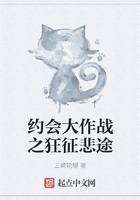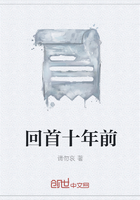One can imagine how much such an attitude as this would appeal to Cowperwood, once he had detected it. By a dozen little signs, in spite of the fact that she brought him delicacies, and commiserated on his fate, he could see that she felt not only sad, but reproachful, and if there was one thing that Cowperwood objected to at all times it was the moral as well as the funereal air. Contrasted with the cheerful combative hopefulness and enthusiasm of Aileen, the wearied uncertainty of Mrs. Cowperwood was, to say the least, a little tame. Aileen, after her first burst of rage over his fate, which really did not develop any tears on her part, was apparently convinced that he would get out and be very successful again. She talked success and his future all the time because she believed in it.
Instinctively she seemed to realize that prison walls could not make a prison for him. Indeed, on the first day she left she handed Bonhag ten dollars, and after thanking him in her attractive voice--without showing her face, however--for his obvious kindness to her, bespoke his further favor for Cowperwood--"a very great man," as she described him, which sealed that ambitious materialist's fate completely. There was nothing the overseer would not do for the young lady in the dark cloak. She might have stayed in Cowperwood's cell for a week if the visiting-hours of the penitentiary had not made it impossible.
The day that Cowperwood decided to discuss with his wife the weariness of his present married state and his desire to be free of it was some four months after he had entered the prison. By that time he had become inured to his convict life. The silence of his cell and the menial tasks he was compelled to perform, which had at first been so distressing, banal, maddening, in their pointless iteration, had now become merely commonplace--dull, but not painful. Furthermore he had learned many of the little resources of the solitary convict, such as that of using his lamp to warm up some delicacy which he had saved from a previous meal or from some basket which had been sent him by his wife or Aileen.
He had partially gotten rid of the sickening odor of his cell by persuading Bonhag to bring him small packages of lime; which he used with great *******. Also he succeeded in defeating some of the more venturesome rats with traps; and with Bonhag's permission, after his cell door had been properly locked at night, and sealed with the outer wooden door, he would take his chair, if it were not too cold, out into the little back yard of his cell and look at the sky, where, when the nights were clear, the stars were to be seen. He had never taken any interest in astronomy as a scientific study, but now the Pleiades, the belt of Orion, the Big Dipper and the North Star, to which one of its lines pointed, caught his attention, almost his fancy. He wondered why the stars of the belt of Orion came to assume the peculiar mathematical relation to each other which they held, as far as distance and arrangement were concerned, and whether that could possibly have any intellectual significance. The nebulous conglomeration of the suns in Pleiades suggested a soundless depth of space, and he thought of the earth floating like a little ball in immeasurable reaches of ether. His own life appeared very trivial in view of these things, and he found himself asking whether it was all really of any significance or importance. He shook these moods off with ease, however, for the man was possessed of a sense of grandeur, largely in relation to himself and his affairs; and his temperament was essentially material and vital. Something kept telling him that whatever his present state he must yet grow to be a significant personage, one whose fame would be heralded the world over--who must try, try, try. It was not given ail men to see far or to do brilliantly; but to him it was given, and he must be what he was cut out to be. There was no more escaping the greatness that was inherent in him than there was for so many others the littleness that was in them.
Mrs. Cowperwood came in that afternoon quite solemnly, bearing several changes of linen, a pair of sheets, some potted meat and a pie. She was not exactly doleful, but Cowperwood thought that she was tending toward it, largely because of her brooding over his relationship to Aileen, which he knew that she knew. Something in her manner decided him to speak before she left; and after asking her how the children were, and listening to her inquiries in regard to the things that he needed, he said to her, sitting on his single chair while she sat on his bed:
"Lillian, there's something I've been wanting to talk with you about for some time. I should have done it before, but it's better late than never. I know that you know that there is something between Aileen Butler and me, and we might as well have it open and aboveboard. It's true I am very fond of her and she is very devoted to me, and if ever I get out of here I want to arrange it so that I can marry her. That means that you will have to give me a divorce, if you will; and I want to talk to you about that now. This can't be so very much of a surprise to you, because you must have seen this long while that our relationship hasn't been all that it might have been, and under the circumstances this can't prove such a very great hardship to you--I am sure." He paused, waiting, for Mrs. Cowperwood at first said nothing.
Her thought, when he first broached this, was that she ought to make some demonstration of astonishment or wrath: but when she looked into his steady, examining eyes, so free from the illusion of or interest in demonstrations of any kind, she realized how useless it would be. He was so utterly matter-of-fact in what seemed to her quite private and secret affairs--very shameless.














